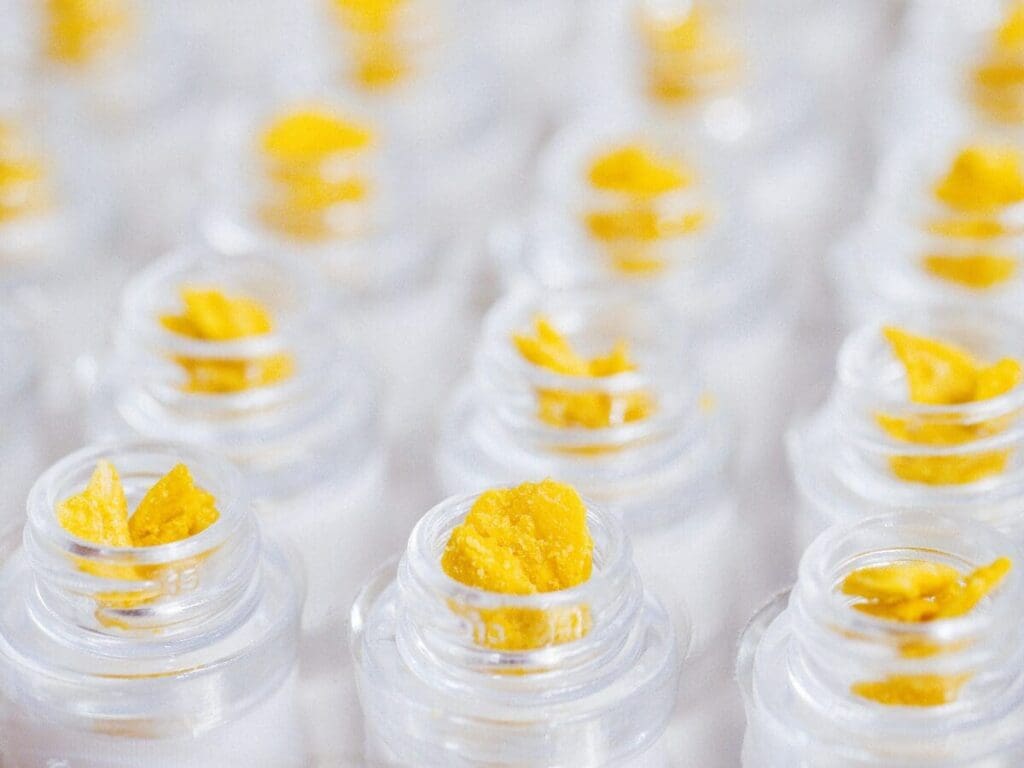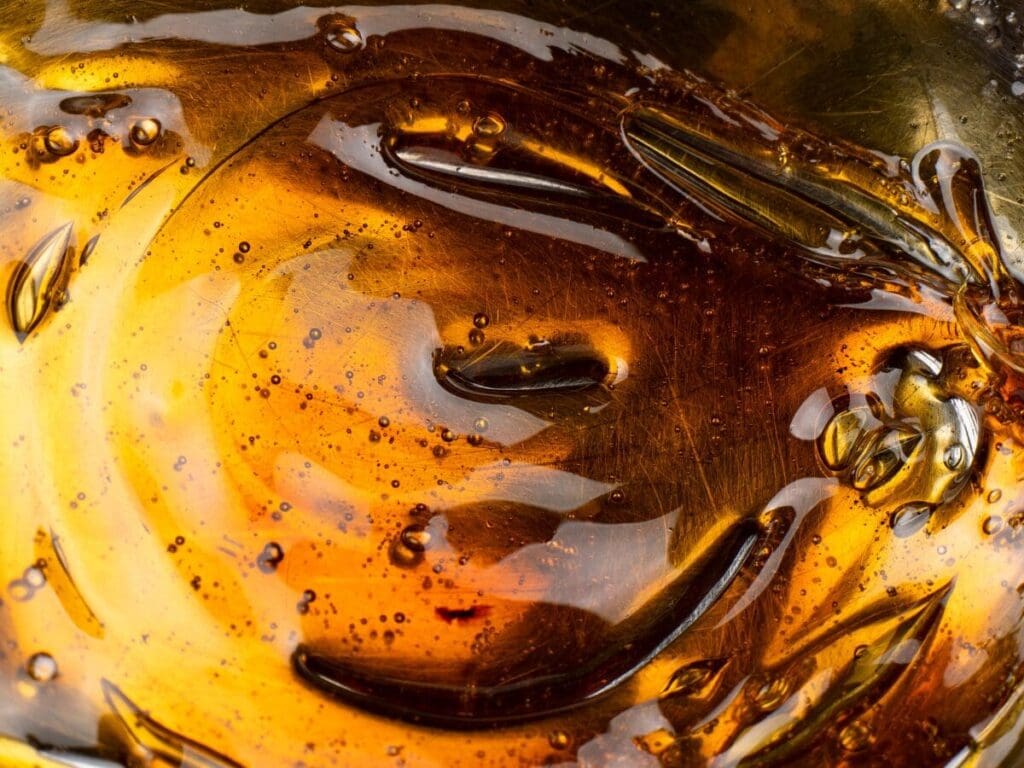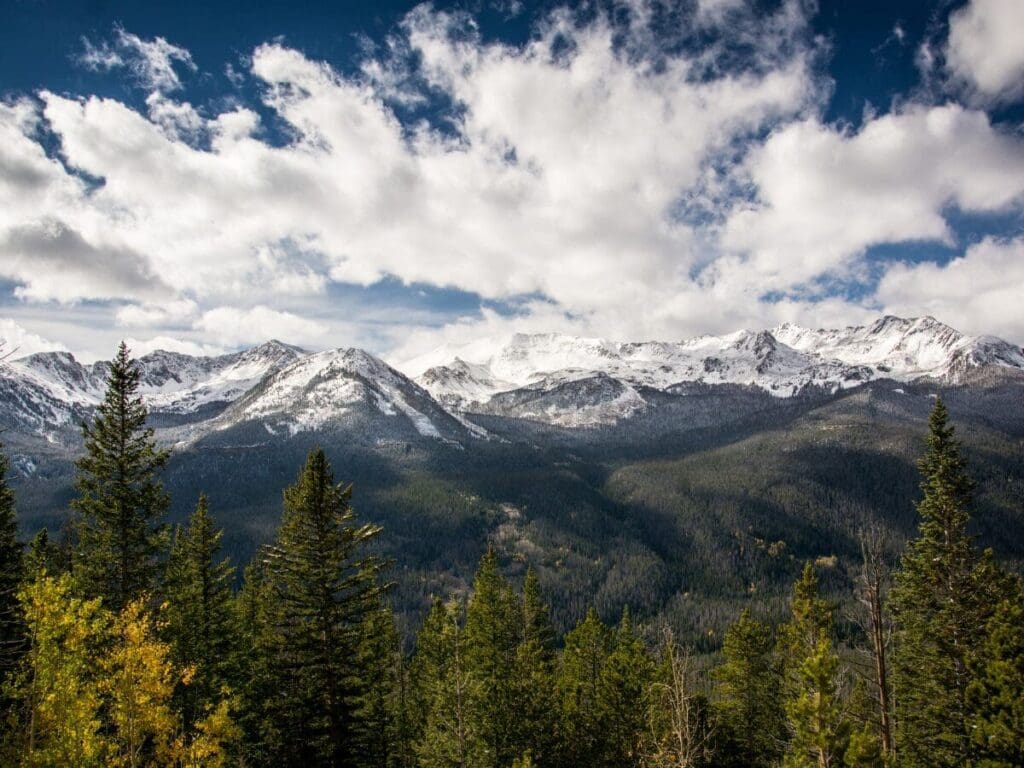Key Takeaways:
- Delta 8 Ban in Colorado: Delta 8 THC is banned in Colorado due to health and safety concerns surrounding its production.
- No Legal Loopholes: There are no exceptions for the sale, transport, or possession of Delta 8 in Colorado.
- Colorado’s Alternatives: Residents can explore regulated cannabis products, such as Delta 9 THC, legally sold in dispensaries.
Ever wondered why Delta 8 THC is becoming such a hot topic? While this cannabinoid offers a unique, milder experience compared to Delta 9, it faces legal challenges in many states, including Colorado.
At Happy Hemp, we take pride in offering premium hemp-derived products that meet rigorous safety standards. As a leader in the industry, we ensure all of our products are third-party tested, ensuring safety, purity, and consistency in every dose.
In this article, we’ll explore Delta 8’s legal status and its implications for Colorado residents.
Federal Legal Status of Delta 8 THC
Delta 8 THC, a cannabinoid found in cannabis plants, has become a topic of legal uncertainty in recent years. While it is derived from hemp, which was legalized under the 2018 Farm Bill, its legal status is far from clear-cut at the federal level. This ambiguity stems from regulatory definitions and evolving interpretations of laws concerning cannabis derivatives. Below is a detailed examination of key points that shape the federal legal status of Delta 8 THC.
The 2018 Farm Bill And Delta 8 THC
The 2018 Farm Bill was a landmark piece of legislation that legalized hemp and its derivatives by removing them from the list of controlled substances. Under this law, hemp is defined as cannabis containing less than 0.3% Delta 9 THC, the psychoactive component primarily responsible for the “high” from marijuana. Since Delta 8 THC is typically derived from hemp, it is technically legal under the Farm Bill. However, this classification only extends to natural derivatives, not synthetic ones, which complicates matters.
The Role Of The DEA’s 2020 Interim Final Rule
In 2020, the DEA issued an interim final rule that raised concerns about the legality of Delta 8 THC. The rule clarified that “synthetically derived” tetrahydrocannabinols remain Schedule I controlled substances under federal law. This has led to confusion because most Delta 8 THC available on the market is synthesized from CBD extracted from hemp. If considered synthetic, Delta 8 THC would fall under the category of controlled substances, thereby conflicting with its legality under the 2018 Farm Bill.
Ambiguity Surrounding Synthetic Vs. Natural Derivation
One of the core issues in the legal status of Delta 8 THC revolves around whether it is considered a naturally derived or synthetically produced compound. Delta 8 can occur naturally in cannabis, but in extremely low quantities, making its extraction inefficient. Therefore, most commercial Delta 8 THC is synthesized through chemical processes from CBD, which introduces a legal grey area. The DEA’s stance against synthetic THC has added to the ambiguity surrounding Delta 8, though no clear federal action has been taken.
State-Level Legal Responses
Given the uncertainty at the federal level, many states have chosen to regulate or ban Delta 8 THC themselves. Some states have fully embraced its legality in alignment with the 2018 Farm Bill, while others have enacted laws to ban or restrict its sale and production. These state-level laws vary significantly, reflecting differing interpretations of both the 2018 Farm Bill and the DEA’s interim final rule. This patchwork of state regulations further complicates the overall legal landscape for Delta 8 THC in the U.S.
Discover premium Delta 8 gummies at Happy Hemp, crafted with the highest quality hemp and rigorously tested for safety and potency. Shop now for a safe and enjoyable experience! Explore here.
Delta 8 THC In Colorado: What The Law Says
In Colorado, Delta 8 THC is explicitly illegal. Despite Colorado being one of the first states to legalize recreational marijuana, it has taken a firm stance against the sale and production of Delta 8 THC. The Colorado Department of Public Health and Environment (CDPHE) issued a statement clarifying that any product containing chemically modified or synthetically derived THC, such as Delta 8, is prohibited in the state.
Colorado’s stance is largely based on health and safety concerns, as the production of Delta 8 often involves chemical processes that are not always well-regulated. This has led Colorado to classify Delta 8 THC similarly to synthetic cannabinoids, which are illegal in the state.

Are There Any Restrictions On Delta 8 Products In Colorado?
Colorado is known for its progressive stance on cannabis, but the state has taken a different approach when it comes to Delta 8 THC. Unlike Delta 9 THC, which is legally available through regulated dispensaries, Delta 8 THC faces strict prohibitions. Below is an examination of Colorado’s stance on Delta 8 products and the consequences of violating these regulations.
Complete Ban On Delta 8 Production And Sale
In Colorado, the production, sale, and distribution of Delta 8 THC are outright banned. This regulation applies to all forms of Delta 8, including edibles, tinctures, vapes, and any other product designed for human consumption. Businesses are prohibited from including Delta 8 in their offerings, regardless of whether they operate through brick-and-mortar locations or online platforms. This ban sets Colorado apart from states that permit Delta 8 under the federal framework of the 2018 Farm Bill.
Prohibition On Consumer Products Containing Delta 8 THC
Colorado’s ban on Delta 8 extends beyond production and sales to include its use in consumer products. This means that Delta 8 THC cannot be legally incorporated into any items sold at retail locations, dispensaries, or online stores within the state. The prohibition covers all product forms, whether they are food items, vaporizers, or other types of consumables. This strict regulation reflects Colorado’s cautious approach to cannabinoids that fall outside of its established marijuana laws.
Penalties For Businesses Violating Regulations
Businesses that violate Colorado’s ban on Delta 8 face significant penalties. These penalties can range from hefty fines to the complete closure of operations. The state enforces these regulations to ensure that its cannabis industry complies with all legal standards, especially in regard to product safety and consumer protection. Businesses that attempt to skirt these regulations by selling Delta 8 products, whether in-state or through online platforms, risk severe legal consequences.
Illegal To Purchase And Import Delta 8 From Out Of State
Consumers in Colorado must also be cautious when it comes to Delta 8 THC. Although the state’s laws primarily target businesses, individuals who purchase Delta 8 from out-of-state vendors and bring these products into Colorado are technically breaking the law. While enforcement actions against individual consumers are rare, possessing Delta 8 products could still result in legal complications, including potential fines or citations if caught.
Alternatives To Delta 8 THC In Colorado
Although Delta 8 THC is banned in Colorado, residents still have access to a variety of other cannabis products that offer both psychoactive and non-psychoactive benefits. Colorado’s regulated cannabis industry provides legal alternatives that cater to different preferences, from recreational use to therapeutic benefits. Below are some of the most popular alternatives available in the state.
- Delta 9 THC: Delta 9 THC is the primary psychoactive compound found in cannabis and is fully legal for recreational and medical use in Colorado. It provides stronger effects compared to Delta 8 and is available in a wide range of products, including edibles, tinctures, vape cartridges, and concentrates. Consumers benefit from strict state regulations that ensure these products are tested for safety, potency, and quality.
- CBD (Cannabidiol): For those seeking non-psychoactive effects, CBD is a legal and popular alternative. Available in numerous forms such as oils, creams, capsules, and gummies, CBD offers relaxation, pain relief, and anti-inflammatory properties without producing the “high” associated with THC. CBD products are widely available in both retail outlets and online stores across Colorado.
- Full-Spectrum CBD: Full-spectrum CBD products contain a mix of cannabinoids, including trace amounts of THC (under 0.3%), alongside other beneficial compounds found in hemp. These products are often favored for their “entourage effect,” where the combination of cannabinoids enhances their therapeutic potential. They are commonly available in oils, edibles, and topicals.
- THC-O Acetate: THC-O is another cannabinoid that has gained popularity as an alternative to Delta 8. It is known for its stronger psychoactive effects and is sometimes referred to as a “spiritual cannabinoid” due to its intense high. However, its legality and safety are still debated, and it is less regulated than Delta 9 THC in Colorado.
- CBG (Cannabigerol): Cannabigerol (CBG) is a non-psychoactive cannabinoid that is becoming increasingly popular for its potential health benefits. Known for its anti-inflammatory, antibacterial, and neuroprotective properties, CBG is available in tinctures, capsules, and other forms. It’s often marketed for pain relief, focus, and overall well-being.
Understanding The Colorado Cannabis Market
Colorado’s cannabis market is one of the most developed and regulated in the United States. After becoming one of the first states to legalize recreational marijuana in 2012, Colorado has built a robust industry that caters to both recreational and medical consumers. With a focus on regulation, safety, and consumer access, the Colorado cannabis market continues to thrive and serve as a model for other states. Below is an in-depth look at key aspects of the cannabis market in Colorado.
Legalization Of Recreational Marijuana In 2012
In 2012, Colorado voters approved Amendment 64, which legalized the recreational use of marijuana for adults aged 21 and over. This move made Colorado a trailblazer in cannabis reform and set the stage for the creation of a regulated market. Since the passage of the amendment, the state has developed a comprehensive legal framework governing the cultivation, distribution, and sale of cannabis. The law allows adults to purchase marijuana products through licensed dispensaries, paving the way for both a booming industry and a new source of tax revenue for the state.
Wide Variety Of Cannabis Products Available
Colorado’s cannabis market offers an extensive selection of marijuana products to meet diverse consumer needs. Delta 9 THC, the primary psychoactive compound in cannabis, is available in numerous forms, including edibles, tinctures, vape cartridges, flower, and concentrates. Consumers can choose from various strains, strengths, and delivery methods to suit their preferences, whether for recreational use or therapeutic purposes. The availability of such a wide range of products reflects the maturity of Colorado’s cannabis industry and the demand for tailored cannabis experiences.
Strict Regulatory Oversight For Quality And Safety
A hallmark of Colorado’s cannabis industry is its stringent regulatory oversight. All cannabis products sold in the state must go through rigorous testing to ensure their potency, safety, and quality. This includes screening for contaminants such as pesticides, mold, and heavy metals, as well as verifying the THC and CBD content in each product. By enforcing strict regulations, the state ensures that consumers can trust the cannabis products they purchase, promoting both public safety and industry transparency. Dispensaries in Colorado are also required to follow precise packaging and labeling guidelines, providing consumers with clear information about product content and usage instructions.
Licensing And The Role Of Dispensaries
Licensed dispensaries play a central role in Colorado’s cannabis market. These dispensaries are authorized to sell cannabis products to consumers who meet the legal age requirement. Each dispensary must adhere to a strict set of guidelines that govern everything from product storage to employee training and customer verification. This ensures that only qualified businesses are allowed to operate within the legal framework. Additionally, dispensaries are the primary access point for consumers, offering education and guidance on product selection, usage, and dosage.
Economic Impact And Tax Revenue
The cannabis industry has had a significant economic impact on Colorado, generating billions in revenue and creating thousands of jobs. The state imposes taxes on marijuana sales, which have contributed to public funding for education, infrastructure, and health programs. In 2022 alone, cannabis sales exceeded $2 billion, a testament to the industry’s growth and importance to the state’s economy. The success of Colorado’s cannabis market has also spurred other states to consider similar legalization measures, using Colorado as a model for balancing industry growth with public health and safety.
Medical Marijuana Program
In addition to recreational cannabis, Colorado maintains a well-established medical marijuana program. Patients with qualifying conditions, such as chronic pain, cancer, and epilepsy, can obtain medical marijuana cards that grant them access to products specifically tailored for medical use. Medical marijuana products often contain higher levels of CBD and other cannabinoids that provide therapeutic benefits without the strong psychoactive effects of recreational marijuana. The program is tightly regulated, with patients required to obtain certification from a licensed physician.

Final Thoughts
While Delta 8 THC may be legal in some states, Colorado has opted to ban its sale and use due to health and safety concerns surrounding its production. This means that consumers in Colorado must turn to other legal cannabis alternatives, such as Delta 9 THC or CBD products, which are readily available through the state’s regulated dispensaries. As laws continue to evolve, it’s important for consumers to stay informed about the legal status of cannabinoids like Delta 8 and make choices that comply with state regulations.
Read also:
- Delta 8 THC Flower: What You Need to Know
- How Long Do THC-Infused Drinks Last? Duration and Effects
- How Long Does THCA Stay in Your System? Understanding Detection Times
Frequently Asked Questions About The Legality Of Delta 8 In Colorado
Is Delta 8 THC the same as Delta 9 THC?
No, Delta 8 THC is a less potent analog of Delta 9 THC. Both provide psychoactive effects, but Delta 8 is generally considered milder.
Can I legally ship Delta 8 THC into Colorado?
No, it is illegal to ship or transport Delta 8 THC into Colorado, as the state bans the sale and possession of Delta 8 products.
Why is Delta 8 banned in Colorado but not Delta 9 THC?
Colorado bans Delta 8 due to concerns about its synthetic production and potential health risks, while Delta 9 THC is tightly regulated and sold through licensed dispensaries.
Are there any exceptions for medical use of Delta 8 THC in Colorado?
No, Colorado does not allow Delta 8 THC for medical or recreational use under any circumstances.
Is CBD legal in Colorado?
Yes, CBD, which is non-psychoactive and derived from hemp, is legal in Colorado, as long as it contains less than 0.3% THC.
Can I possess Delta 8 THC for personal use in Colorado?
Possession of Delta 8 THC is prohibited in Colorado, whether for personal use or sale, as per state regulations.
What is the penalty for selling Delta 8 THC in Colorado?
Businesses caught selling Delta 8 THC in Colorado can face fines, license revocation, and potentially criminal charges.
How does Colorado regulate other cannabinoids besides Delta 8?
Colorado strictly regulates cannabinoids, including Delta 9 THC, which can only be sold through licensed dispensaries, but it allows legal CBD sales.
Are Delta 8 products being sold illegally in Colorado?
While illegal sales might occur, purchasing or selling Delta 8 THC in Colorado is unlawful and can result in penalties for both consumers and vendors.
Will Colorado’s stance on Delta 8 THC change in the future?
It’s possible that federal rulings or further research could prompt a re-evaluation of Delta 8’s legal status in Colorado, but there are no signs of imminent changes.
Sources:
- Delta-8-THC. (2024, February). KLRD. https://klrd.gov/2024/02/01/delta-8-thc-2/
- What is Delta-8 THC? And if I use it, am I safe to drive? (n.d.). Colorado Department of Transportation. https://www.codot.gov/safety/shift-into-safe-news/2023/december/what-is-delta-8-thc-and-if-i-use-it-am-i-safe-to-drive
- Industrial Hemp | Colorado Cannabis. (n.d.). Cannabis.colorado.gov. https://cannabis.colorado.gov/industrial-hemp
- Delta 8 THC Legality: ACS Laboratory’s Comprehensive State-by-State Regulation Guide. (n.d.). Www.acslab.com. https://www.acslab.com/cannabinoids/regulation-the-legality-of-thc-delta-8-a-state-by-state-guide
- Austin, K. (2021, February 15). Is Delta-8 Legal in Colorado? (2024 Update). VO Inc. https://vidaoptimacbd.com/blogs/cannabis-encyclopedia/is-delta-8-thc-legal-in-colorado







